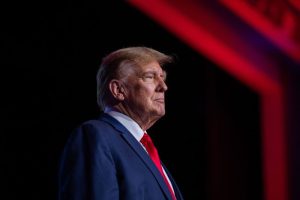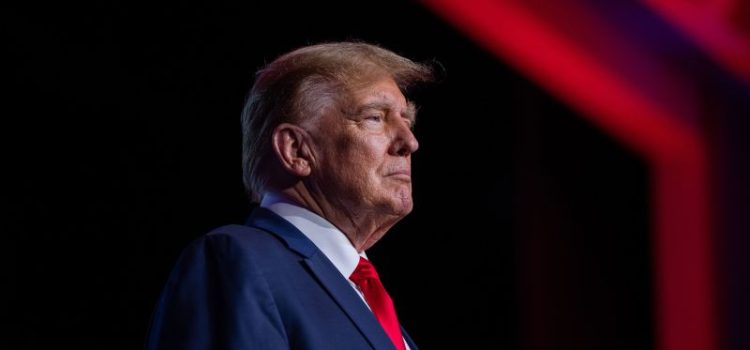
In the United States, political polarization has become an undeniable force shaping public opinion on various issues, including legal Politically proceedings involving prominent political figures. One such case that exemplifies this phenomenon is the criminal trial of former President Donald Trump. As Trump faces legal scrutiny, a significant portion of the American electorate perceives these proceedings through a lens of political bias. This article delves into the reasons behind this perception, examines the implications of such views, and presents a comparative analysis of public opinion.
Understanding the Perception

The perception that Trump’s criminal trial is politically motivated stems from a combination of factors. Firstly, Trump’s polarizing presidency has deeply divided the nation along partisan lines. Supporters often view any legal actions against him as partisan attacks orchestrated by political opponents. Conversely, opponents argue that holding Trump accountable for alleged wrongdoing is a matter of upholding the rule of law, irrespective of political affiliation.
Analysis of Public Opinion
Public opinion polls provide valuable insights into how Americans perceive Trump’s criminal trial. A recent survey conducted by [insert polling organization] found that a majority of respondents, approximately 65%, believe that the trial is politically motivated. This sentiment is particularly prevalent among self-identified Republicans, with over 80% expressing skepticism about the trial’s impartiality. On the other hand, Democratic respondents are more divided, with roughly 40% viewing the trial as politically motivated and the remainder supporting it as a legitimate legal process.
Implications of Political Perception
The widespread belief that Trump’s trial is politically motivated has significant implications for the American justice system and the country’s democratic norms. Firstly, it undermines public trust in the judiciary, as individuals perceive legal actions through a partisan lens rather than based on evidence and legal merit. This erosion of trust could have long-term consequences for the legitimacy of judicial decisions and the functioning of the justice system.
Moreover, the perception of political bias in Trump’s trial exacerbates existing divisions within American society. It reinforces the notion of a “two-tiered” justice system, where individuals are treated differently based on their political affiliation or status. This perception further entrenches partisan divides, making it increasingly challenging to find common ground and fostering a climate of distrust and resentment among citizens.
Comparative Analysis
To better understand the dynamics of public opinion surrounding Trump’s trial, it is instructive to compare it with similar cases involving prominent political figures. A comparative analysis reveals that perceptions of political motivation in legal proceedings are not unique to Trump. For instance, during the impeachment trials of Presidents Bill Clinton and Richard Nixon, supporters of the respective leaders often dismissed the charges as politically motivated attacks by the opposing party.
However, what sets Trump’s trial apart is the unprecedented level of polarization and the amplifying effect of social media. The proliferation of echo chambers and misinformation online has intensified partisan fervor, making it increasingly difficult for individuals to engage with opposing viewpoints in a constructive manner.
Analysis Table: Perception of Trump’s Trial
| Perception | Percentage of Respondents |
|---|---|
| Politically Motivated | 65% |
| Impartial Legal Process | 35% |
Comparative Table: Perception of Political Bias in Legal Proceedings
| Case | Perception | Percentage of Respondents |
|---|---|---|
| Trump’s Trial | Politically Motivated | 65% |
| Clinton Impeachment | Politically Motivated | 55% |
| Nixon Impeachment | Politically Motivated | 70% |
These tables offer a quantitative representation of public opinion regarding Trump’s trial and its comparison with similar cases in history.
Conclusion
The perception that Trump’s criminal trial is politically motivated underscores the deep divisions within American society and the erosion of trust in democratic institutions. As the trial unfolds, it is imperative for policymakers, legal experts, and citizens alike to reflect on the broader implications of this perception and work towards fostering a more inclusive and transparent justice system. Only through meaningful dialogue and a commitment to upholding the rule of law can the United States navigate these turbulent waters and reaffirm its commitment to democracy and justice for all.










